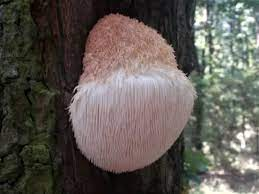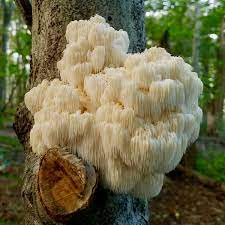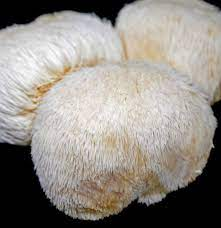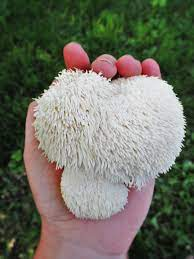
As we look to Mother Nature and the many essential benefits she has to offer, we discover a lot more than we thought. Medicine and pharmaceuticals have enjoyed a lot of benefits from nature’s gifts.
One of these many gifts includes the lion’s mane mushroom. This mushroom has caused a lot of waves in the last few years as scientists work to discover the potentially beneficial things it has to offer mankind.
What is the lion’s mane mushroom, and what about it makes it a potentially effective ingredient in the health sector? In the rest of this article, we will go over everything you need to know about the Lion’s Mane mushroom. What it is, how it works, its benefits, side effects, support, and uses.
What is Lion’s Mane Mushroom?

Massive, white, shaggy mushrooms that resemble a lion’s mane as they develop are called lion’s mane mushrooms, also known as hou tou gu or yamabushitake. In Asian nations, including China, India, Japan, and Korea, they are used for both culinary and medicinal purposes.
The long, hanging spines on lion’s mane mushrooms are typically longer than a centimeter. Hericium erinaceus has spines that protrude outward rather than from a branch, giving it the distinctive appearance of a lion’s mane. Most mushroom species have spines that project from a branch.
They are widespread throughout the late summer and early fall and can be found on both live and dead broadleaf trees.
Mushrooms from the lion’s mane can be eaten fresh, roasted, dried, or steeped in tea. Their extracts are frequently found in over-the-counter health products. Many people compare the flavor to crab or lobster when they say it has a “seafood-like” flavor. The body, notably the brain, heart, and stomach, is benefited by the bioactive chemicals found in lion’s mane mushrooms.
Is Lion’s Mane a fungus?

Lions’ Mane (Hericium erinaceus) are mushrooms that grow in dead oaks and on dead hardwood trunks. Mushrooms, in general, belong to the kingdom of fungi. Like mammals, fungi consume dissolved molecules by absorbing them; they normally do this by releasing digestive enzymes into their surroundings.
Members of this family do not photosynthesize.
Except for spores (some of which are flagellated), which may travel via the air or water, their mode of propulsion is growth. The main decomposers in ecological systems are fungi, which are made of two types of mushrooms.
We have edible and non-edible mushrooms:
- Non-edible mushrooms are ones that contain certain toxins that are dangerous to the human system.
- The edible mushroom consists of various types.
They have according to share review has been used throughout history for culinary meals as well as an ingredient in most household treatments for certain health conditions. The lion’s mane mushroom, in particular, is used widely throughout East Asian medicine. It is believed that the lion’s mane mushroom can aid in nerve growth. A few other benefits include protecting nerves from damage and anxiety treatment.
Uses and Benefits of the Lion’s Mane Medicinal Mushroom

Anxiety and Depression
The lion’s mane mushroom can help reduce anxiety and depression and prevent neuropathy, and it has been shown that it helps prevent dementia.
According to recent studies, lion’s mane mushroom extract possesses anti-inflammatory properties that help lessen mice’s signs of anxiety and sadness and increase the function of the nervous system. Additionally, it was shown that lion’s mane extract can support brain cell regeneration and enhance the hippocampus’s functionality, a part of the brain involved in processing memories and feelings.
While there are numerous factors that might contribute to anxiety and depression, chronic inflammation may be a significant one.
Cardiovascular Health
These functional mushrooms may potentially aid in heart disease prevention. In vitro and animal studies have revealed that lion’s mane extracts can reduce blood triglycerides, a precursor to heart disease, boost HDL, or “good,” cholesterol, and inhibit the rise of LDL, also known as “bad” cholesterol.
Antioxidant and Immune Boosting
Lion’s capsule and dietary supplement are also known to have strong antioxidants that reduce brain damage, have immunity-boosting properties, and are associated with reduced heart disease and cancer incidence in humans. It has also been a key ingredient in the study of anti helicobacter pylori activity. The study also showed that the product reduced diabetes.
Alzheimer Treatment
Hericenones and erinacines are two unique substances that have been shown to boost the formation of brain cells in lion’s mane mushrooms.
Furthermore, research on animals suggests that a lion’s mane may offer defense against Alzheimer’s disease, a degenerative brain condition that affects brain health and causes gradual memory loss.
In fact, studies on mice have shown that lion’s mane mushrooms and their extracts can lessen mice’s signs of memory loss and can guard against the amyloid-beta plaques that build up in the brain during Alzheimer’s disease from damaging nearby neurons.
Ulcers
Additionally, lion’s mane extract can prevent tissue damage and inflammation in other intestine-related locations. In fact, they could aid in the treatment of inflammatory bowel conditions including Crohn’s disease, early Alzheimer’s disease, mild cognitive impairment, and ulcerative colitis.
H. pylori bacterial overgrowth and damage to the stomach’s mucous layer, which is frequently brought on by long-term use of non-steroidal anti-inflammatory medicines, are the two main causes of stomach ulcers.
By preventing the growth of H. pylori and defending the stomach lining from harm, lion’s mane extract may prevent the onset of stomach ulcers and support slow blood clotting.
Lowers Blood Sugar Level
In multiple animal trials, the health benefits of lion’s mane have been proven to significantly lower blood sugar levels in both normal and diabetic mice, even at daily dosages as low as 2.7 mg per pound (6 mg per kg) of body weight.
One way that a lion’s mane lowers blood sugar levels is through the enzyme alpha-glucosidase, which digests carbs in the small intestine.
When this enzyme is blocked, blood sugar levels fall because the body is unable to digest and absorb carbohydrates as well. It has been demonstrated that lion’s mane extract lowers blood sugar levels and eases diabetic nerve pain in the hands and feet.
Cancer Treatment
Research suggests that the consumption of some of the unique elements of the lion’s mane mushroom may be able to combat cancer. It has been shown that adding lion’s mane extract to human cancer cells in a test tube causes the cells to die more quickly. Multiple cancer cell types, including those from the stomach, liver, colon, and blood, have been used to demonstrate this.
Overall the ability of the mushroom extract to halt the spread of cancer has shown that lion’s mane extract significantly slowed the spread of colon cancer to the lungs in mice and promoted the function of the immune system.
Since the lion’s mane mushroom’s potential anti-cancer abilities have never been demonstrated in humans, more research is necessary.
Please note that many of these benefits also apply to other mushrooms. And if you want to learn more about the benefits other mushrooms provide, listen to my interview with Jeff Chilton, founder of RealMushrooms.Org:
Is Lion’s Mane fungus edible?
The heritable erinceus is a white fungus with a globe-like shape and a long, sagging spine. It can be eaten or taken as a supplement. Researchers suggest the drug can be effective and can reduce inflammation as well as improve brain health.
What Does Lion’s Mane fungus taste like?

The flavor of the mane resembles fish and is frequently compared with crab and shrimp. Hence, its use as a vegetarian substitute for seafood is often popular among the public. It is also eaten fresh, boiled in tea, or added to culinary dishes as a healthy vegetarian protein food option.
What are the Negative Effects of Lion’s Mane?

Freshly picked lion’s mane is tolerated pretty well. However, lion’s mane supplements might cause skin rashes, nausea, and gastrointestinal pain as adverse effects. Additionally, it could interfere with diabetic medications and blood-clotting drugs like warfarin.
Does Lion’s Mane Make you High?
Since lion’s mane mushroom supplements are not psychoactive, you won’t get “high,” your perception won’t be altered, and your mood or nerve cells won’t be significantly affected. However, there are certain mushrooms that have the ability to make you high 😉
Can You Eat Lion’s Mane Mushroom Raw?

Although eating raw Lion’s Mane mushrooms has no significant health hazards, most people concur that cooking Lion’s Mane is preferable for a number of reasons.
- First of all, sautéed Lion’s Mane mushrooms are exceptionally tasty!
- It is said to have the same taste as prawns and crabs, making it a perfect seafood substitute for culinary meals.
So yes, you can eat lion’s mane raw; however, it is best to cook it as a meal or boil it as tea to enjoy it to the fullest.
What does the Supplement Lion’s Mane Do?
Research suggests lion manes can help prevent dementia by decreasing anxiety and depression and repairing nerve damage. Besides being a powerful immune-boosting agent, this having lion’s mane regularly also lowers the risk of heart disease, cancer, anti-H. pylori activity, ulcers, and diabetes. However, the supplements do come with certain side effects, like nausea and rashes, compared to the freshly picked ones.
How does Lion’s Mane Make You Feel?
Adding lion’s mane mushrooms to your diet reduces anxiety as well as depressive behaviors, which helps you relax. In addition, if you have a feeling of stress, you can take lion’s mane, which can help relieve stress and improve your cardiovascular health, medical condition, and nerve growth factor.
Can you Take Lion’s Mane Everyday?
Is it really safe for you to consume the maitake mushroom every week for the best results? Long-term benefits are increased as the lion’s mane supplement or dietary supplement is used longer.
This is especially true for health conditions like diabetes prevention and Parkinson disease treatment. The use of the mushroom every night can be very beneficial to the fruiting body.
Long-term benefits, including its potential for preventing diabetes, blood clotting, and treating Parkinson’s disease, are heightened by using this mushroom. For lion’s mane supplements, it is best to consult a medical or health professional on dosage.
The author of this post, Jared Levenson, would like to share that he routinely takes Lion’s Mane supplements.
What Does Lion’s Mane do to the Brain?
This remarkable fungus may have a huge impact on how neurological diseases develop.
Lion’s mane has an impact on brain function by encouraging “neurite expansion” in the brain and related organs, according to research that was published in the Journal of Restorative Medicine.
“Neurite outgrowth” is the term used to describe the growth of axons and dendrites from neurons. By encouraging this multiplication, the primary characteristic of diseases like Alzheimer’s and Parkinson’s, brain cell degeneration, may be delayed or reversed.
Can Lion’s Mane Help with Nerve Damage?
Research suggests that lion’s hair can prevent dementia symptoms and improve the healing of nerve damage. The drug has been proven to lower the risks of heart disease, cancer, ulcers, and diabetes among humans.
Are Lions Mane Capsules the Best Choice?
Dosages are important, and natural products aren’t always safe, so keep that in mind.
While freshly picked lion’s mane is considered a lot more effective, supplements are created to solve issues such as dosages and other health complications.
Always consult a healthcare professional before using, and follow all necessary directions on product labels. Researchers found that the desired effect of taking lion’s mane daily has a 48-week duration.
Is Lion’s Mane a Good Option for Old People and Children?
Research has found lion’s mane can protect from dementia, lower the symptoms and reduce nerve injury in people. It is also very beneficial for reducing cardiovascular disease, toxicity, cancer, ulcers, and diabetes among animals.
However, do well to consult a health care professional or a medical practitioner to ensure only the right steps are taken in the right way.
How Long does it take lion’s Mane to Work?
According to a biophysics review, a lion’s mane can regulate and stimulate anxious reactions after a few days. After 2–5 days of use, many patients feel less anxious or more calm. The dose varies from individual to individual. Longer-lasting effects are much more visible after two months of consistent use.
Do Lions Mane Pills Work?
Participants taking functional mushrooms had improved cognitive abilities. This significant increase indicates that lion’s mane supplements are capable of helping reduce cognitive impairment in children and cure neurological health and functioning.
What is the Best Form of Lion’s Mane to Take?
How can one use functional mushroom extract without pain or discomfort with a tablet?
- Mane capsules might take longer to reach your system, but you can take your lion mane dosage easily with a glass of water.
- You may eat lion’s mane mushrooms as food, either fresh, cooked, dried, or steeped in tea.
- In over-the-counter health supplements, their extracts are frequently employed to treat mild cognitive impairment.
Is Lion’s Mane Mushroom Worth It?
Lion’s Mane om mushrooms are also highly nutritional and contain a good amount of food vitamins and amino acids that support cognition. It also has high levels of of cognition and important potential health benefits and mineral deposits, like manganese.
The mane of the mane of a lion is full of healthy and beneficial substances and reduced risk factors with the nervous system’s overall, health including the spinal cord.
- Research share review also works to prove that lion’s mane may protect from aging, help with depression, and help with nerve repair.
- It is also very effective against inflammation, cancer cells antioxidants and immune boosters and is shown to help lower cholesterol in high fat diet and diabetes in animal models.
How Much Should I Take Daily?
When taking lion’s mane extract you have to take between 250-1000 mg per day. For those unfamiliar with Lion’s Mane, you can start by taking a few small doses.
Where can I Find Lion’s Mane Mushroom?
According to share review lion mushroom yamabushitake is native to woody areas. Typical walnut spruce, oak, maple, hericenone b, pine and black pine. They grow in dead logs during late autumn in North America. Moreover, this fungus can be found in dead wood and other damaged areas.
Does Lion’s Mane Affect the Nervous System?
Lion’s mane significantly improved cognitive functioning for an older age cohort of 15 in a placebo-controlled randomized study. Rodent studies suggest lion’s mane health benefits could protect cells and improve mind function reducing damage caused.
What do Lion’s Mane Capsules Do?
Lion’s mane’s neurotrophic properties are effective in protecting against Alzheimer’s disease and helping relieve pain and discomfort associated with anxiety and depression. It is an anti-inflammatory antioxidant with bioactive components and an immune booster that is intended to prevent heart attacks, strokes, and other cardiovascular disorders in animals.
When Should I take Lion’s Mane Capsules?
I suggest taking it early in the morning or early in the afternoon. These “om” mushrooms help increase productivity and memory throughout the whole day.



